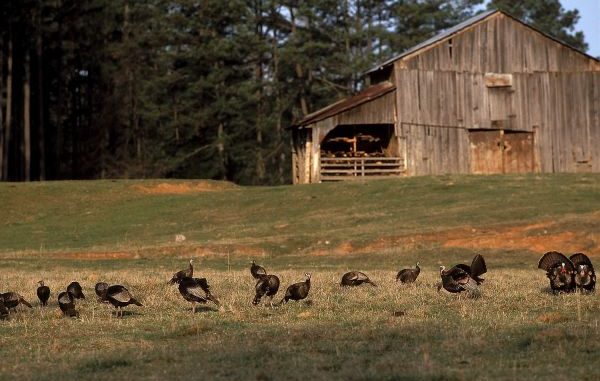
Randy Stafford has been turkey hunting in Louisiana since he was a youngster — even when there was a very small population that could be hunted.
So he knows a bit about chasing them, and he admitted the late season is presents the most challenges.
“Later in the season, the birds will certainly gobble less due to hunting pressure,” Stafford said. “Also, on many occasions you’ll find a gobbler that has been pestered by five or six jakes. Therefore, he will just not gobble that much.”
Fear of dominant gobblers also plays into it.
“Subordinate (longbeard) birds will also not gobble a lot because the dominant birds will come up and whip them,” the hunter said.
Stafford has also witnessed gobblers stay on the limb until the hens have made their way to him on the ground to ensure it’s safe to leave the roost.
Stafford finds midday hunting more productive later in the season.
“The hens that are with the gobbler early gradually leave them by midmorning,” Stafford said. “That old bird will be looking for other hens, and they’ll respond better at that time of the day.
“Mid-morning to lunch can be some of the best times to hunt later in the season.”
Stafford said he will “take the temperature” of the bird after making a few initial calling attempts to determine how he should proceed
“He may respond hot or cold, or may move toward you gobbling all the way,” he said. “The type and amount of calling I’ll do is dictated by the response of that particular bird.”
But, like Williams, Stafford said there are some gobblers who won’t make a peep.
“A lot of birds come in silent,” Stafford said. “I think it’s due to the hunting pressure — especially on public lands. The truth is that when they’re silent like that, they slip in and are gone before many hunters know they’ve even been there.
Admittedly, Stafford doesn’t like to hunt silent birds.
“I don’t care if I kill them or not; I don’t enjoy hunting silent gobblers,” he said.
As for specific calls, Stafford said hunters should have an arsenal from which to choose.
“Turkeys react differently to different types of calls,” he said. “Sometimes you can pull out a box or a slate and they respond wildly. At other times, it may be soft calling on a diaphragm.”
Stafford prefers Perfection calls, Pittman calls and Tom Teaser mouth calls.
“I look for calls that are easy for me to use, but I will advise hunters to pick some up and try what works for them,” he said. “Rhythm and cadence is way more important than the sound you’re making.”
But that doesn’t mean birds will respond to any old call.
“You have to know the basics — yelps, purrs, putts and clucks, and you can produce these on a box or slate,” he said. “It’s hard to make a bad call on slate.”


